Practice WBSSC SLST Education Mock Test on the Philosophical Foundation of Education with MCQ answers. Boost your preparation with real exam-level questions for WBSSC School Service aspirants.
SLST Education Mock Test with Answers | Philosophical Foundation of Education
Are you preparing for the WBSSC SLST (School Service Commission) exam?
Here is a high-quality MCQ mock test set focusing on the Philosophical Foundations of Education, a key area in the Education syllabus. Practice these questions and evaluate your understanding before the exam.
Idealism in Education – Concept and Aims of Education, Methods of Teaching and Role of Teachers
Idealism in education emphasizes the importance of mind, ideas, and spiritual values. It promotes value-based education aiming at the self-realization and moral development of learners.
👉 According to Plato – “Ideas are the only reality. The material world is just a shadow of the real world of ideas.”
👉 According to J.S. Ross – “Idealism is the assertion that reality consists of ideas, thoughts, minds or selves rather than material objects and forces.”
According to this philosophy, the aims of education go beyond material success and focus on eternal truths. The role of the teacher is central, as a moral guide and ideal for students. Idealism in education strongly influences curriculum design, teaching methods, and character formation.
Q. Who is one of the main proponents or Father of Idealism in education?
A. John Dewey
B. Rousseau
C. Plato
D. Aristotle
Q. In which country did Idealism originate?
A. India
B. Germany
C. Greece
D. France
Q. What is the basic meaning of ‘Idealism’ in education?
A. Belief in physical objects only
B. Belief in money and economy
C. Belief in ideas, mind, and spirit
D. Belief in experimentation
Q. According to Idealism, what is the ultimate aim of education?
A. Development of physical strength
B. Scientific progress
C. Realization of spiritual values
D. Earning money
Q. Which of the following best describes Idealism in education?
A. Focus on material world
B. Emphasis on sense experience
C. Emphasis on mind and ideas
D. Knowledge through trial and error
Q. What method of teaching is most suitable according to Idealism?
A. Heuristic Method
B. Lecture Method
C. Discovery Method
D. Project Method
Q. Which subject is considered most important by Idealists?
A. Physical Education
B. Moral and Religious Education
C. Technical Education
D. Commerce
Q. According to Idealism, the role of a teacher is to –
A. Facilitate experiments
B. Act as a guide and moral model
C. Provide entertainment
D. Teach skills only
Q. Idealism gives more importance to –
A. Environment
B. Human mind and spirit
C. Technology
D. Economic values
Q. Idealist curriculum emphasizes –
A. Physical training
B. Practical subjects
C. Cultural and value-based subjects
D. Skill-based modules
Q. Which of the following is not a feature of Idealism?
A. Emphasis on eternal truth
B. Belief in spiritual world
C. Emphasis on practical life
D. Development of personality
Q. In Idealistic education, the teacher is seen as a –
A. Facilitator only
B. Technician
C. Philosopher and friend
D. Computer operator
Q. “Education is the manifestation of perfection already in man” – Who said this?
A. Rousseau
B. Plato
C. Swami Vivekananda
D. John Dewey
Q. Idealism in education gives primary importance to –
A. Body
B. Environment
C. Mind and spirit
D. Practical life
Q. Which of the following philosophers is not an Idealist?
A. Plato
B. Kant
C. John Dewey
D. Hegel
Q. Who among the following is a modern supporter of Idealism?
A. John Locke
B. Swami Vivekananda
C. Rousseau
D. Dewey
Q. Who is the father of idealism in India?
A. John Locke
B. Swami Vivekananda
C. Rousseau
D. Mahatma Gandhi
Naturalism in Education – Concept and Aims of Education, Methods of Teaching and Role of Teachers
Naturalism is a philosophy of education which believes that nature is the ultimate reality, and education should be in harmony with the natural development of the child. It emphasizes learning through direct experience, sensory perception, and contact with the natural environment.
👉 According to Jean-Jacques Rousseau (Father of Naturalism) – “Everything is good as it comes from the hands of the Author of nature; but everything degenerates in the hands of man.” (Émile, 1762)
👉 According to J.S. Mill – “The mind is a blank slate and knowledge comes through sensory experiences.”
👉 According to T.P. Nunn – “Naturalism is a system of education which is opposed to all supernaturalism and formalism in the process of teaching and learning.”
👉 According to Rabindranath Tagore (Supporter of Educational Naturalism) – “Education must be in harmony with the natural environment of the child.”
Q. Who is considered the Father of Naturalism in education?
A. Plato
B. Jean-Jacques Rousseau
C. John Dewey
D. Herbert Spencer
Q. Naturalism as a philosophy of education originated in –
A. Ancient India
B. Ancient Greece
C. 18th Century Europe
D. 20th Century America
Q. According to Naturalism, education should be based on:
A. Religious values
B. Military discipline
C. Natural development of the child
D. Memorization techniques
Q. Naturalism emphasizes learning through –
A. Lectures
B. Experiences and environment
C. Examinations
D. Rituals and customs
Q. According to Naturalists, the real teacher is –
A. Principal
B. Curriculum
C. Nature
D. Society
Q. What is the main aim of education according to Naturalism?
A. Development of willpower
B. Self-realization
C. Harmonious development with nature
D. Preparation for religious life
Q. What teaching method is most preferred in Naturalism?
A. Storytelling
B. Memorization
C. Experiential learning and observation of the natural world.
D. Dictation
Q. What is the role of the teacher in Naturalistic education?
A. Strict disciplinarian
B. Passive observer
C. Co-learner and facilitator
D. Religious preacher
Q. Which of the following best describes Naturalism in education?
A. Mind is the ultimate reality
B. Matter is everything
C. Nature is the entire reality and education must align with it
D. God is the source of all knowledge
Pragmatism in Education – Concept and Aims of Education, Methods of Teaching and Role of Teachers
Pragmatism is a modern, practical philosophy that emphasizes experience, activity, and problem-solving in education. According to this view, truth is not fixed or absolute, but rather changes with time and situation. Education should prepare learners to face real-life challenges, not just memorize bookish knowledge. It supports child-centered, activity-based learning where the learner is an active participant in shaping knowledge.
👉 According to William James (Father of Pragmatism) – “The true is only the expedient in our way of thinking.”
👉 According to John Dewey – “Education is not preparation for life; education is life itself.”
👉 According to Kilpatrick (Dewey’s student and proponent of the Project Method) – “Education is the reconstruction of experience.”
The chief exponents or key contributors of pragmatism are Charles S. Peirce, William James, Schiller, John Dewey, Margaret H. Mead and W.H. Kilpatrick.
- John Dewey – The father of Pragmatic education, emphasized “learning by doing”
- William James – Promoted individual experience as the core of knowledge
- Charles Sanders Peirce – Introduced the concept of inquiry and experimentation
Q. Who is regarded as the Father of Pragmatism?
A. William James
B. John Dewey
C. Charles Sanders Peirce
D. Rousseau
Q. Which of the following is a major supporter of Pragmatism in education?
A. Immanuel Kant
B. John Dewey
C. Herbert Spencer
D. Froebel
Q. Pragmatism as a philosophy of education originated in –
A. Germany
B. France
C. United States
D. England
Q. Which of the following best explains Pragmatism?
A. Ideas are eternal and unchanging
B. Reality is spiritual
C. Truth changes with time and experience
D. Knowledge comes only from books
Q. According to Pragmatism, education should focus on –
A. Religious training
B. Bookish knowledge
C. Practical life and experiences
D. Memorization
Q. The famous educational principle of Pragmatism is
A. Learn by listening
B. Learn by doing
C. Learn by reading
D. Learn by watching
Q. Which teaching method is most preferred by Pragmatists?
A. Rote learning
B. Dictation
C. Project method
D. Lecture method
Q. According to Pragmatism, the role of the teacher is –
A. Authority of all knowledge
B. Passive observer
C. Guide and facilitator
D. Religious leader
Q. What is the aim of education in Pragmatism?
A. Attainment of salvation
B. Preparation for exams
C. Social efficiency and problem-solving
D. Worship of nature
Q. Which quote best reflects the Pragmatic philosophy in education?
A. “Truth is that which works.”
B. “Knowledge is virtue.”
C. “God is the source of all knowledge.”
D. “All ideas are illusions.”
Marxism in Education – Concept and Aims of Education, Methods of Teaching and Role of Teachers
Marxism in education is a philosophy that views education as a tool shaped by economic, political, and social forces.
Marxism emphasizes the idea that the education system maintains the dominance of the ruling class, and that true education should aim to bring about equality, critical awareness, and social change.
Karl Marx (Pioneer of Marxism)
👉 While Marx did not write extensively on education, his theory of historical materialism forms the base of Marxist education. He believed – “The ruling ideas of each age have ever been the ideas of its ruling class.”
👉 According to Paulo Freire (Neo-Marxist Educator) – “Education is a practice of freedom.”
Q. Who is the founder of Marxism?
A. Herbert Spencer
B. Jean-Jacques Rousseau
C. Karl Marx
D. John Dewey
Q. Who among the following is a key supporter of Marxism?
A. Bertrand Russell
B. Friedrich Engels
C. Rabindranath Tagore
D. Mahatma Gandhi
Q. Marxism originated in which century?
A. 16th Century
B. 18th Century
C. 19th Century
D. 20th Century
Q. What is the core meaning of Marxism?
A. Belief in divine will
B. Emphasis on social class equality and material conditions
C. Promotion of spiritual development
D. Focus on nature-based learning
Q. According to Marxism, education is mainly a tool for
A. Earning money
B. Social mobility and reproduction of class structure
C. Religious enlightenment
D. Self-realization only
Q. What is one of the primary aims of education in Marxist philosophy?
A. To develop spiritual values
B. To promote individualism
C. To bring social and economic equality
D. To preserve existing class system
Q. Which teaching method is aligned with Marxist educational thought?
A. Dictation method
B. Learning by doing
C. Dialogue and critical thinking
D. Ritual memorization
Q. In Marxist education, what is the role of the teacher?
A. Moral preacher
B. Neutral facilitator
C. Change agent and liberator
D. Authoritative figure
Q. According to Marxist educators, knowledge should be used to –
A. Maintain tradition
B. Develop artistic sense
C. Challenge inequality and oppression
D. Memorize historical facts
Q. Marxism in education sees schools as
A. Places of religious practice
B. Institutions for cultural refinement
C. Ideological state apparatuses
D. Purely economic training grounds
Q.
Visit Edutiips website for more important questions with answers to be uploaded.
References
- Best, J.W & Khan, J.V (2006) “Research in Education” (10th Ed.). New Delhi: PHI Learning Private Limited.
- Creswell, J.W (2019) “Educational Research” (4th Ed.). Pearson, ISBN 978-93-325-4947-0
- Kaul L. (1984) Methodology of Education Research, New Delhi, Vikas Publishing House
- Kishan, N (2016) “Economics of Education” APH Publishing Corporation.
- WBSSC SLST Education Mock Test with Answers
Q. Are MCQ tests helpful for WBSSC SLST?
Ans. – Definitely. Regular practice improves speed and accuracy.

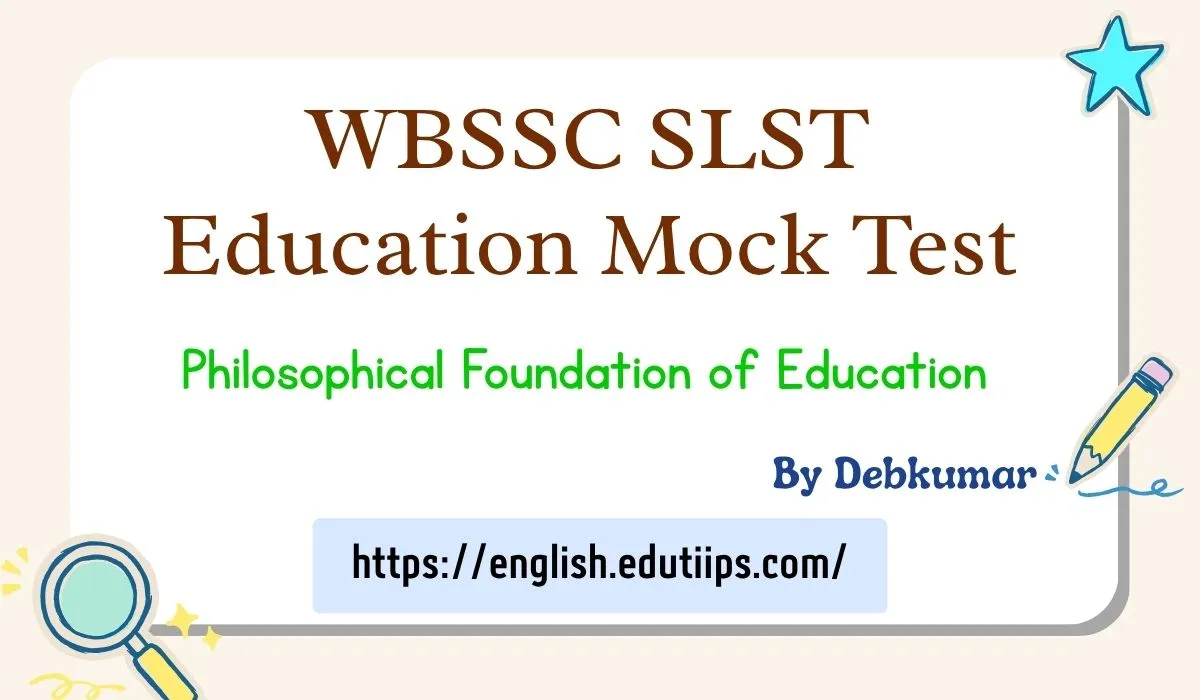
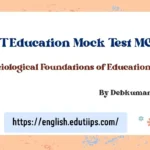
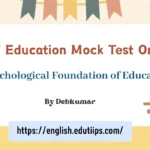
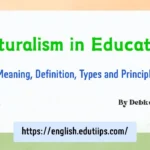
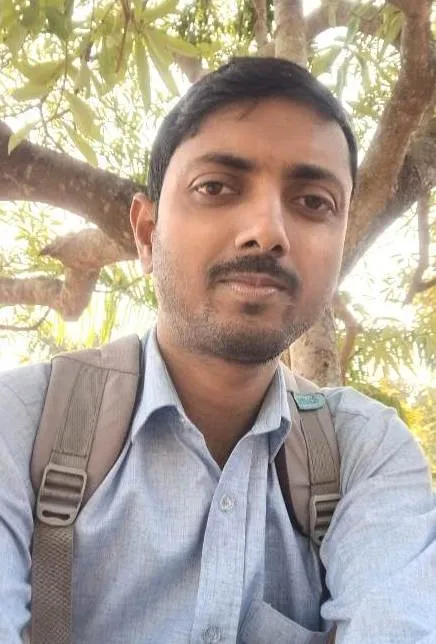
More content in English language related to Slst education please
স্যার আমি আপনার বিভিন্ন তথ্য ও মক টেস্ট দিয়ে খুবই গর্বিত এবং আপনার কাছে চির কৃতজ্ঞ বোধ করছি স্যার। আমি খুব উপকৃত হচ্ছি আপনার এই এক নম্বর নাম্বার ওয়ান স্ট্যান্ডার্ড করছেন তৈরি করার জন্য। চির কৃতজ্ঞ আপনার কাছে এবং এই ভাবে মক টেস্ট যাওয়ার জন্য স্যার আপনি খুব কঠিন পরিশ্রম করে আমাদের জন্য এটা করছেন আমি আপনার কাছে চির কৃতজ্ঞ স্যার আমার বলার কোন ভাষা আর নেই। আসছেই না আমি এত গর্বিত এবং আপনার কাছে ঋণী। জ্ঞানের ঋণী। অনেক শিক্ষককে দেখেছি তার মধ্যে আপনি একজন সেরা অন্যতম।
Good sir all over best always best for the first time in my life best teacher